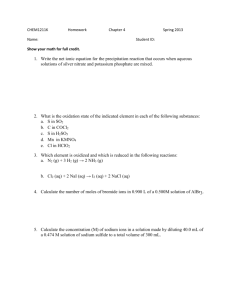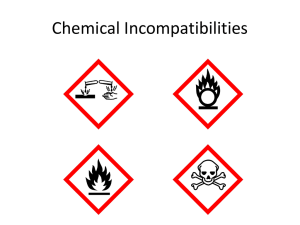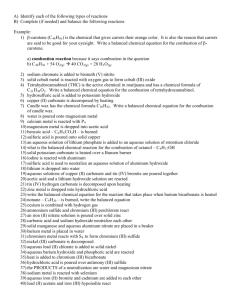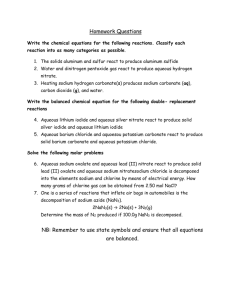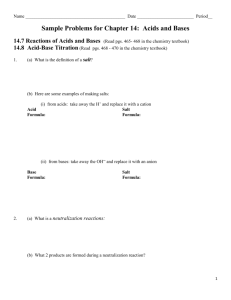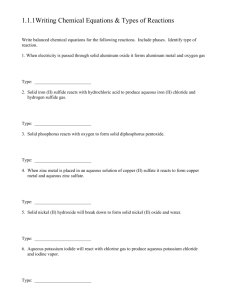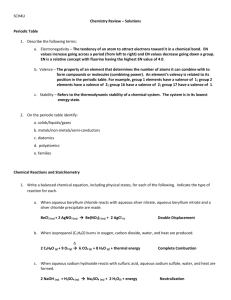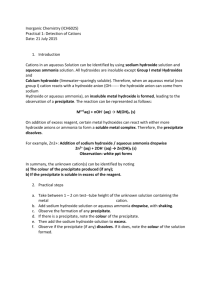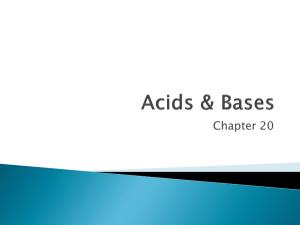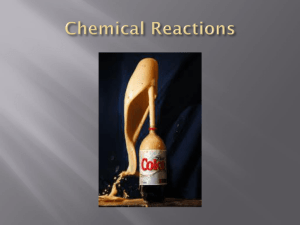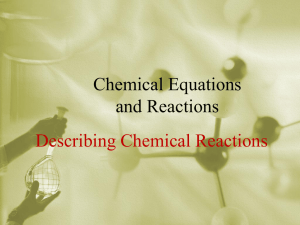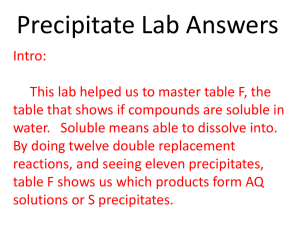Acid-Base Reactions
advertisement
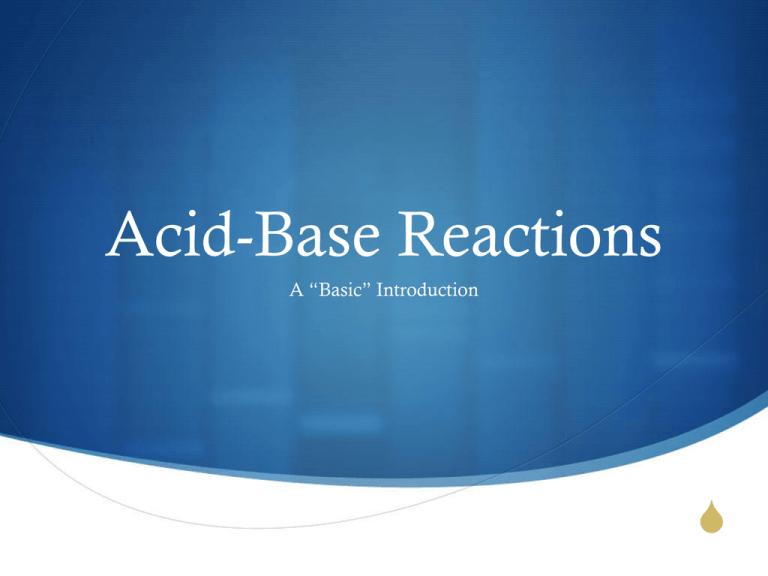
Acid-Base Reactions A “Basic” Introduction S Acids S Ionize in aqueous solutions to form H+ ions S Memorize the 7 strong acids (completely ionize, never write as complete formula) S All other acids are weak and you write as the complete formula, not ions Bases S Substances that react with H+ ions S Memorize 8 strong acids (completely ionize) S All others are weak and do not completely ionize, write as complete formulas Neutralization S Reaction that occurs when acid and base solutions are mixed to produce water and a salt: H2SO4 + Ca(OH)2 CaSO4 + 2H2O S Strong acids and bases and salts would be ionized, so the net ionic looks like: 2H+ + 2OH- 2H2O Weird Acid-Base Reactions S When ionic compounds containing carbonate, sulfite, or sulfide ions react with an acid a gas is released S CO2 from carbonate S SO2 from sulfite S H2S from sulfide More weirdness S Nonmetal oxides are acidic and react with bases: SO2 + 2NaOH Na2SO3 + H2O S Metal oxides are basic and react with acids: Na2O + 2HCl 2NaCl + H2O Really weird… S If you are having trouble figuring out the products, try adding a water to the nonmetal &/or metal oxide: SO2 + MgO MgSO3 Add a water to each reactant: H2SO3 + Mg(OH)2 2H2O + MgSO3 Now cancel out 2 waters on each side and you have your reaction. Practice S Gaseous hydrogen chloride is bubbled through a solution of sodium hydroxide. S Aqueous potassium hydroxide is mixed with a solution of acetic acid. S Calcium hydrogen carbonate solid is added to an aqueous solution of acetic acid. S Aqueous nitric acid reacts with solid lithium sulfite. S Sulfuric acid solution is added to solid aluminum oxide. S Carbon dioxide gas is bubbled through aqueous sodium hydroxide. Gaseous hydrogen chloride is bubbled through a solution of sodium hydroxide. Aqueous potassium hydroxide is mixed with a solution of acetic acid. Calcium hydrogen carbonate solid is added to an aqueous solution of acetic acid. Aqueous nitric acid reacts with solid lithium sulfite. Sulfuric acid solution is added to solid aluminum oxide. Carbon dioxide gas is bubbled through aqueous sodium hydroxide.
